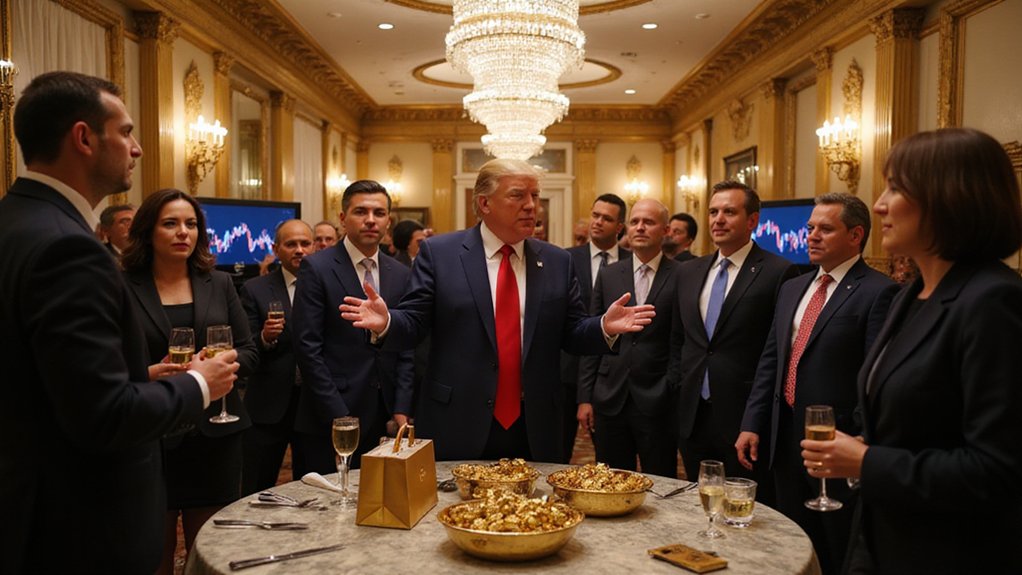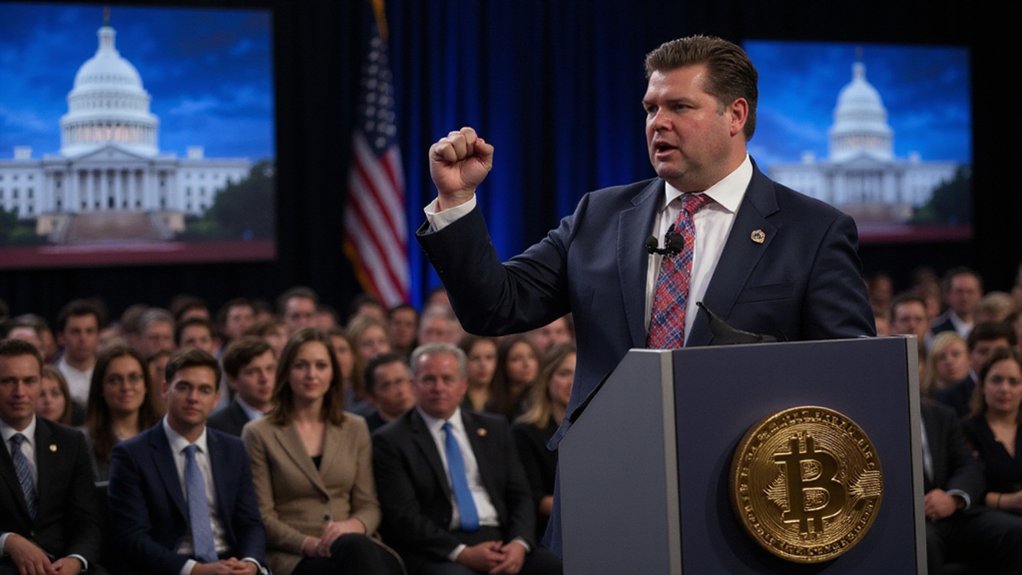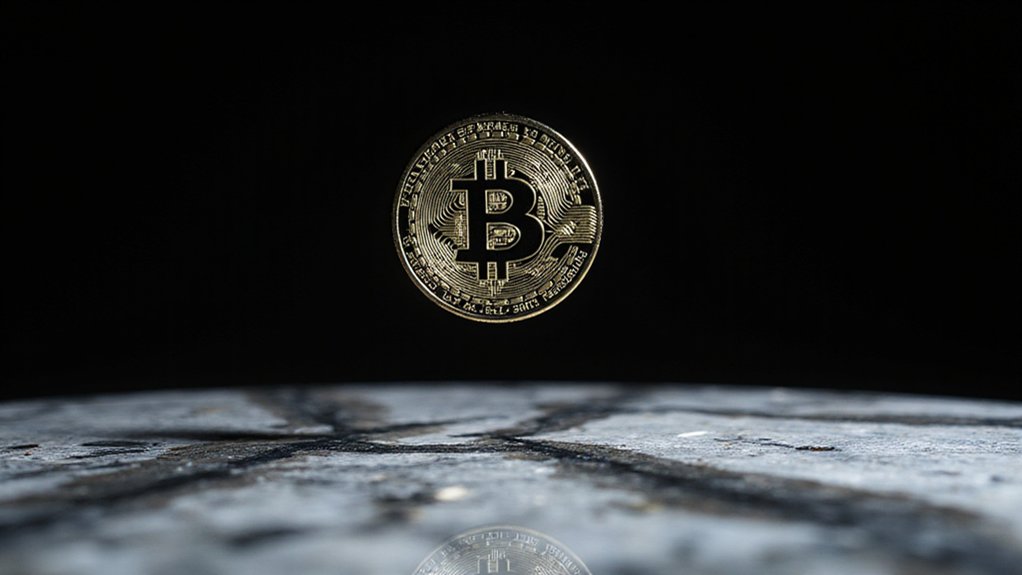When exactly did cryptocurrency—once the rebellious outsider of financial markets—become the belle of Washington’s ball?
President Trump’s recently announced $148 million crypto extravaganza signals not merely a political pivot but a fundamental realignment of power dynamics between traditional governance and decentralized finance.
The Strategic Bitcoin Reserve, now diversified beyond its namesake to include XRP, Solana, Cardano, and Ethereum, represents more than a portfolio expansion—it’s Washington’s admission that digital assets have transcended their fringe origins.
Washington’s embrace of diverse cryptocurrencies signals digital assets have graduated from rebellious outsiders to legitimate financial powers.
David Sacks, appointed as the administration’s AI and Crypto Czar, has orchestrated what insiders describe as a meticulously calculated convergence of political capital and digital wealth, with the White House Crypto Summit serving as its centerpiece.
The summit will be officially led by President Trump himself, who will oversee the proceedings while working closely with his appointed crypto leadership team.
Elite attendees aren’t merely purchasing access; they’re securing positions in what may become the defining economic transformation of the decade.
The $148 million price tag—exorbitant by conventional fundraising standards—seems almost quaint when considering the trillion-dollar market being courted.
Guests will reportedly enjoy privileged insights into forthcoming regulatory frameworks, proximity to the Trump family (with Donald Jr. and Eric slated for the Bitcoin Conference 2025), and the ineffable currency of being present at the genesis of America’s official crypto doctrine.
The ripple effects extend far beyond domestic politics.
As Consensus 2025 prepares to convene in Toronto and Hong Kong, the global crypto community watches with a mixture of opportunism and trepidation.
Will American crypto hegemony emerge as collaborative or competitive?
The answer may determine whether blockchain’s borderless promise survives its political adoption.
Markets have responded with predictable enthusiasm—a rally that critics might call premature and advocates would deem belated.
What remains undeniable is cryptocurrency’s astonishing journey from cypherpunk manifestos to White House galas. The administration’s promise to treat Bitcoin as a genuine reserve asset represents a dramatic shift from previous government approaches that often resulted in premature sales and substantial taxpayer losses.
The initiative draws inspiration from BlackRock’s IBIT structure that revolutionized institutional Bitcoin access without requiring complex self-custody solutions.
The question now isn’t whether digital assets will transform governance, but whether governance will transform digital assets—and at what cost to their foundational ethos.









